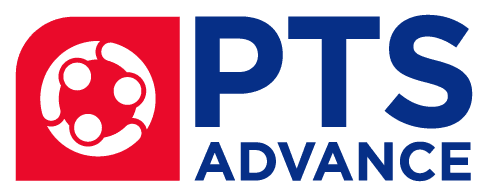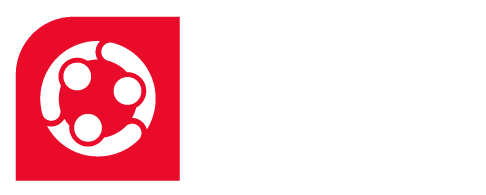Current Job Openings
The I&C Engineer primarily applies principles, knowledge, and practices of instrumentation and process controls for timely identification, analysis, and resolution of instrument and process controls related issues to ensure safe, reliable, and cost-efficient plant operations. The I&C Engineer also utilizes current and new industry-accepted developments to improve plant performance and reliability, which includes initiating and developing instrument or control system modifications and new projects. The I&C Engineer reports to the Controls Manager and supports project management in the areas of project management, development of budgets, and process controls.
ESSENTIAL JOB FUNCTIONS
Reasonable accommodation may be made to enable individuals with disabilities to perform the essential functions and competencies.
Develop control systems projects with varying degrees of complexity, ensuring compliance and adherence to accepted industry best practices.
Support in the development of control logics for BPCS and Safety systems (Algorithm, guidance on how to implement)
PID loop tuning, modifying control algorithm based on process conditions
Participate in the development of procedures involving Instrument & Controls engineering knowledge, e.g., maintenance and management of control systems, executing changes to configurations, graphics, control loops, DCS, shutdown systems, etc.
Support in the development of strategies for applying new and/or enhancements to existing technologies to improve operating efficiency.
Provide technical support to Engineering, Maintenance, Operations, Inspection, Process, and Project personnel regarding selection, operation, maintenance, troubleshooting, and long-term reliability of plant equipment.
Provide troubleshooting assistance to the Operations and Maintenance Teams as required for process controls and date history.
Review and recommend changes to the plant complex loops, 'cause and effect matrix', alarm list, etc. to improve plant reliability and protect plant assets.
Review technical specifications for repairs to existing equipment or procurement of new equipment.
Perform compliance audits on SIS systems, as required, and take appropriate action to correct non-compliance and reinforce positive behaviors.
Support and review Control Equipment Performance Evaluations, Key Performance Indicators (KPIs), and decide and make recommendations to the Plant Team and Management based on these evaluations.
Consults with subject matter experts and provides input to the development and implementation of solutions to equipment related/reliability issues.
Provide necessary support to guide the timing, planning, and execution phases of plant shutdowns and turnarounds.
Reviews plant equipment operating parameters and initiates technical discussions and research to ensure optimal operability.
Provide Instrument & Controls engineering support in the development and review of Standard Operating Procedures (SOPs).
Identify projects, supported with written justification, for inclusion in capital expenditure budgets.
Work with contractors and outside vendors/suppliers of developing project concepts, quoting scope of work, and cost justifications regarding projects.
Provide evaluations on assigned and self-initiated tasks (identifying, analyzing, and recommending actions to address abnormal and less efficient plant parameters).
Participate in and at times lead incident investigation teams for troubleshooting and determining the root cause of plant issues/problems.
Actively participate in Process Hazard Analysis (i.e., HAZOPs, What Ifs)
Understand and comply with the Management of Change (MOC) process.
Always present a professional image to clients and vendors and maintain a positive reputation for the company.
Follow all relevant company policies and procedures.
Assists other Departments and other administrative personnel as necessary.
Perform other tasks as assigned.
QUALIFICATIONS
LICENSES, CERTIFICATIONS, AND/OR REGISTRATIONS
None required.
EDUCATION, EXPERIENCE, AND/OR TRAINING
Bachelor's degree in engineering or equivalent experience in Process Control or Instrumentation Engineering required.
Three (3) - Five (5) years working in the chemical or petrochemical industry required.
Working knowledge of industry codes and standards (IEC, NFPA, ANSI, IEEE, NEMA, etc.) required.
Experience in programming and maintenance of Distributed Control Systems (DCS), safety shutdown systems, and Programmable Logic Control (PLC) systems required.
Experience with CENTUM® VP integrated production control system, ProSafe®-RS safety instrumented system, Exaquantum™ plant information management system, and Plant Resource Manager (PRM®) software package preferred.
Experience with Siemens Step 7 software package preferred.
KNOWLEDGE, SKILLS, AND ABILITIES
Instrumentation and Technology - Knowledge of the practical application of instrumentation and technology. This includes applying principles, techniques, procedures, and equipment to the design and production of various goods and services.
Complex Problem Solving - identifying complex problems and reviewing related information to develop and evaluate options and implement solutions.
Critical Thinking - using logic and reasoning to identify the strengths and weaknesses of alternative solutions, conclusions, or approaches to problems.
Judgment and Decision Making - Considering the relative costs and benefits of potential actions to choose the most appropriate one.
Systems Evaluation - Identifying measures or indicators of system performance and the actions needed to improve or correct performance, relative to the goals of the system.
Soft skills - Communication, Teamwork, time management.
Strong leadership and mentoring skills.
SPECIAL REQUIREMENTS
TOOLS / EQUIPMENT
Computer
Copy Machine
Scanner
Telephone system
SOFTWARE
Proficiency in Microsoft Office, including Excel, Word, and Outlook required.
Yokogawa DCS/SIS Software package
PHYSICAL
Physical ability to work around and on industrial equipment, including frequent climbing of stairs and ladders.
Ability to wear Personal Protective Equipment (PPE) in designated areas (respirator, hard hat, safety glasses, gloves, heeled boots, and hearing protection).
Ability to lift 20 lbs. occasionally.
Ability to sit for prolonged amounts of time required.
Ability to effectively communicate through various means required.
ENVIRONMENTAL
The majority of work is performed within an office environment, including office equipment - such as computers, telephones, and copiers.
Requires passing by industrial equipment on way to the office.
Noise levels are typically moderate.
Require exposure to the field.
WORK SCHEDULE
Regular 40-hour work week, normal duty hours as assigned.
Occasional evening and weekend work may be required as job duties demand.
May work longer hours to meet deadlines as necessary or to support facility emergencies
TRAVEL
Less than 10% of the time.
ESSENTIAL JOB FUNCTIONS
Reasonable accommodation may be made to enable individuals with disabilities to perform the essential functions and competencies.
Develop control systems projects with varying degrees of complexity, ensuring compliance and adherence to accepted industry best practices.
Support in the development of control logics for BPCS and Safety systems (Algorithm, guidance on how to implement)
PID loop tuning, modifying control algorithm based on process conditions
Participate in the development of procedures involving Instrument & Controls engineering knowledge, e.g., maintenance and management of control systems, executing changes to configurations, graphics, control loops, DCS, shutdown systems, etc.
Support in the development of strategies for applying new and/or enhancements to existing technologies to improve operating efficiency.
Provide technical support to Engineering, Maintenance, Operations, Inspection, Process, and Project personnel regarding selection, operation, maintenance, troubleshooting, and long-term reliability of plant equipment.
Provide troubleshooting assistance to the Operations and Maintenance Teams as required for process controls and date history.
Review and recommend changes to the plant complex loops, 'cause and effect matrix', alarm list, etc. to improve plant reliability and protect plant assets.
Review technical specifications for repairs to existing equipment or procurement of new equipment.
Perform compliance audits on SIS systems, as required, and take appropriate action to correct non-compliance and reinforce positive behaviors.
Support and review Control Equipment Performance Evaluations, Key Performance Indicators (KPIs), and decide and make recommendations to the Plant Team and Management based on these evaluations.
Consults with subject matter experts and provides input to the development and implementation of solutions to equipment related/reliability issues.
Provide necessary support to guide the timing, planning, and execution phases of plant shutdowns and turnarounds.
Reviews plant equipment operating parameters and initiates technical discussions and research to ensure optimal operability.
Provide Instrument & Controls engineering support in the development and review of Standard Operating Procedures (SOPs).
Identify projects, supported with written justification, for inclusion in capital expenditure budgets.
Work with contractors and outside vendors/suppliers of developing project concepts, quoting scope of work, and cost justifications regarding projects.
Provide evaluations on assigned and self-initiated tasks (identifying, analyzing, and recommending actions to address abnormal and less efficient plant parameters).
Participate in and at times lead incident investigation teams for troubleshooting and determining the root cause of plant issues/problems.
Actively participate in Process Hazard Analysis (i.e., HAZOPs, What Ifs)
Understand and comply with the Management of Change (MOC) process.
Always present a professional image to clients and vendors and maintain a positive reputation for the company.
Follow all relevant company policies and procedures.
Assists other Departments and other administrative personnel as necessary.
Perform other tasks as assigned.
QUALIFICATIONS
LICENSES, CERTIFICATIONS, AND/OR REGISTRATIONS
None required.
EDUCATION, EXPERIENCE, AND/OR TRAINING
Bachelor's degree in engineering or equivalent experience in Process Control or Instrumentation Engineering required.
Three (3) - Five (5) years working in the chemical or petrochemical industry required.
Working knowledge of industry codes and standards (IEC, NFPA, ANSI, IEEE, NEMA, etc.) required.
Experience in programming and maintenance of Distributed Control Systems (DCS), safety shutdown systems, and Programmable Logic Control (PLC) systems required.
Experience with CENTUM® VP integrated production control system, ProSafe®-RS safety instrumented system, Exaquantum™ plant information management system, and Plant Resource Manager (PRM®) software package preferred.
Experience with Siemens Step 7 software package preferred.
KNOWLEDGE, SKILLS, AND ABILITIES
Instrumentation and Technology - Knowledge of the practical application of instrumentation and technology. This includes applying principles, techniques, procedures, and equipment to the design and production of various goods and services.
Complex Problem Solving - identifying complex problems and reviewing related information to develop and evaluate options and implement solutions.
Critical Thinking - using logic and reasoning to identify the strengths and weaknesses of alternative solutions, conclusions, or approaches to problems.
Judgment and Decision Making - Considering the relative costs and benefits of potential actions to choose the most appropriate one.
Systems Evaluation - Identifying measures or indicators of system performance and the actions needed to improve or correct performance, relative to the goals of the system.
Soft skills - Communication, Teamwork, time management.
Strong leadership and mentoring skills.
SPECIAL REQUIREMENTS
TOOLS / EQUIPMENT
Computer
Copy Machine
Scanner
Telephone system
SOFTWARE
Proficiency in Microsoft Office, including Excel, Word, and Outlook required.
Yokogawa DCS/SIS Software package
PHYSICAL
Physical ability to work around and on industrial equipment, including frequent climbing of stairs and ladders.
Ability to wear Personal Protective Equipment (PPE) in designated areas (respirator, hard hat, safety glasses, gloves, heeled boots, and hearing protection).
Ability to lift 20 lbs. occasionally.
Ability to sit for prolonged amounts of time required.
Ability to effectively communicate through various means required.
ENVIRONMENTAL
The majority of work is performed within an office environment, including office equipment - such as computers, telephones, and copiers.
Requires passing by industrial equipment on way to the office.
Noise levels are typically moderate.
Require exposure to the field.
WORK SCHEDULE
Regular 40-hour work week, normal duty hours as assigned.
Occasional evening and weekend work may be required as job duties demand.
May work longer hours to meet deadlines as necessary or to support facility emergencies
TRAVEL
Less than 10% of the time.

